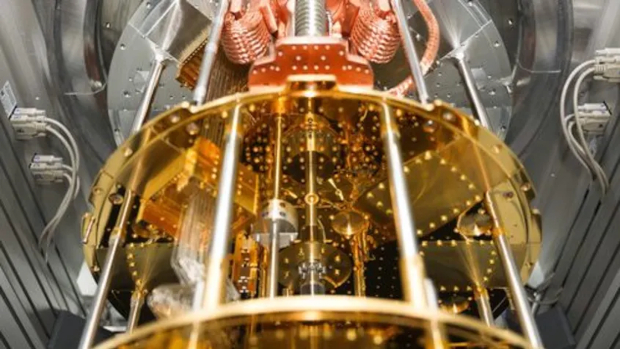
Scientists claim quantum computing works and can prove it
Understanding the state of quantum computing is a tricky business. Never mind that they operate on principles quite divorced from the mental model we use to understand the workings of ‘classical’, which is to say ‘ordinary’, computers, the very existence of quantum computing is controversial.
Companies including IBM, Microsoft and Google are spending on their development, and the share values of quantum specialists like IonQ, D-Wave and Rigetti have speculatively surged of late, but doubts remain about the utility of quantum computing.
For a start, there is the issue of quantum computing being extremely credulity-friendly, and that journalists – myself included – are ill-equipped to interrogate what is being said.
Think claims made for and against artificial intelligence (AI) are extraordinary? Wait until you get a load of this, buddy! Quantum computers will, we are told, render all existing encryption useless. The security implications of this are obvious – and terrifying – but it would also mean we’d be waving bye-bye to Bitcoin, by the way. They’ll revolutionise drug discovery, crack climate modelling, and optimise everything from traffic flows to financial markets (arguably thus making them collapse).
More seriously, there remains the question of whether or not quantum computers actually exist. Do they? Yes and no.
Quantum machines exist in labs, but for now they mostly tackle ‘toy’ problems. In addition, D-Wave sells quantum annealers that use quantum effects but don’t perform general-purpose computations; whether they outperform classical algorithms remains disputed.
In 2019, Google claimed its Sycamore chip achieved ‘quantum supremacy’ by solving a specific task in 200 seconds that it said would take a classical supercomputer 10,000 years. IBM quickly countered that, with optimisation, a classical system could do it in days.
Two things can be true at the same time
Quantum computers use ‘qubits’ rather than the ones and zeros of classical bits. Thanks to quantum mechanics, qubits can be both one and zero simultaneously, allowing these machines to process multiple possibilities at once, at least in theory.
Now, however, researchers from Leiden, Beijing and Hangzhou have developed what they have nicknamed a quantum lie detector. Using a test designed by physicist John Bell, they’ve verified that large quantum systems – up to 73 qubits – genuinely obey quantum mechanics rather than just mimicking quantum behaviour.
The team measured quantum correlations that would be impossible in classical systems, far beyond what classical physics would allow. The researchers said they certified ‘genuine multipartite Bell correlations’ in systems up to 24 qubits – a rare type where all qubits must be quantumly entangled together.
So quantum computers exist in the sense that these machines genuinely operate according to quantum mechanics rather than just simulating quantum-like behavior. That’s not nothing: it means the underlying physics works as claimed, which matters when money is being invested.
But does proving a machine is authentically quantum mean it can solve real problems? Not necessarily. The test confirms these systems exhibit genuine quantum correlations – something classical computers cannot replicate – but it doesn’t prove they can tackle useful tasks that classical computers can’t handle more efficiently.
The researchers themselves frame this as a step toward ‘making sure quantum computers are truly quantum’.
Whether they’ll ever justify the extraordinary claims made for them – the encryption-breaking, drug-discovering, market-optimising revolution we’ve been promised – remains an open question.






Subscribers 0
Fans 0
Followers 0
Followers